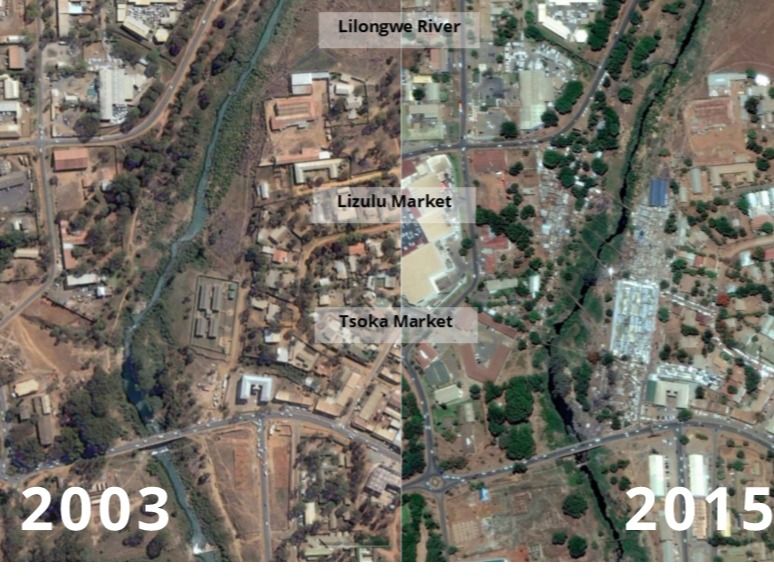
Added: Mar 29, 2021
Last edited: May 12, 2022
After realizing the role that food waste played in polluting local rivers, the UNA Rivers project developed programs to divert organic waste stemming from a market before it entered the river ecosystem. A composting plan was developed; local women volunteers collected organic waste, brought it to a composting site, and earned a small income from the composting products.
(Source: ICLEI, 2021, City Practitioners Handbook: Circular Food Systems)
Informal markets in Lilongwe, Malawi, are often located on the banks of the Lilongwe River. Recently, they have significantly increased in size, compromising the health of the Lilongwe River, with associated challenges including encroachment into the river buffer zone, urban agriculture on the river banks and waste dumping alongside and in the river. This challenges are coumpounded by the fact that the Lilongwe River is the primary source of water to the city.
Both markets are of high importance for the provision of livelihoods, economic opportunities and as integrated community spaces that are embedded in the urban framework of the city. Given the market's importance to the community, ICLEI Africa has started a revitalization project in the area to protect biodiversity and therefore food provision of the city. The UNA Rivers Project in Lilongwe is a pilot project
by ICLEI Africa aiming to support river system health by preventing waste contamination. Food waste made up the majority of the contamination so the project focused on intercepting waste from a local food market. Using a gender inclusive lens, the project supported women working in the market collecting waste for composting by offering training and setting up a composting site. The project was successful in reducing waste to a certain extent. However, the project’s limitations act as a powerful lesson and illustrate the importance of multi-stakeholder engagement where stakeholders can influence the design, planning, and implementation of projects, as well as the importance of understanding the social context.
Important outputs of this piece of work are:
- A site analysis;
- A landscape master plan;
- A phased implementation strategy (with an accompanied budget); and
- The establishment of a steering and technical advisory committee, with the following mandate: improve co-ordination of key stakeholders, co-design activities implemented at the site and oversee activities so that they are aligned with the local council mandates.
Through relationship and partnership building, as well as project proposal submissions, it is the project team’s ambition to see additional components of the river revitalisation plan being implemented in the near future.
Photo from ICLEI

